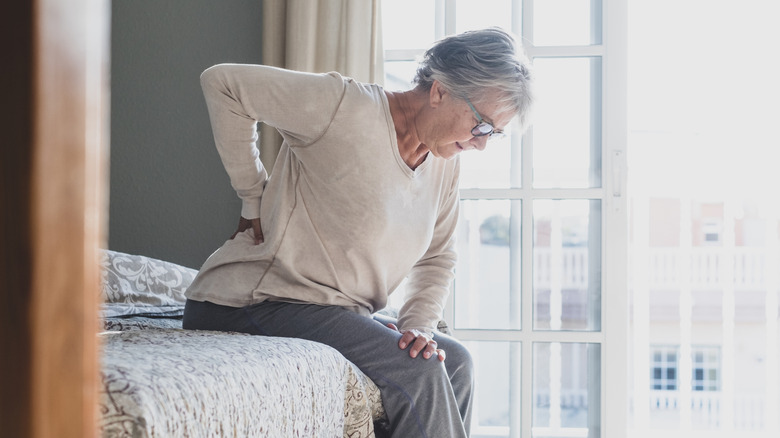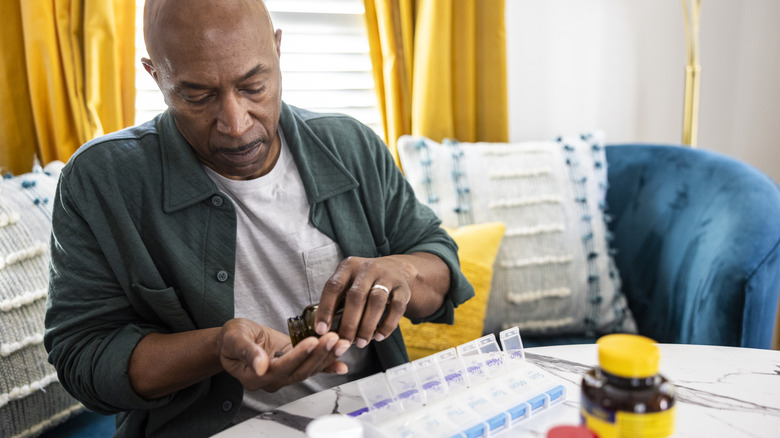Your Back Pain May Be The Result Of A Vitamin Deficiency
Having occasional back pain isn't uncommon. However, if your back pain doesn't disappear no matter what you try, perhaps you're not getting enough vitamin D. You would hardly be alone, if that were the case: Vitamin D deficiency is a prevalent issue that affects around 35% of individuals in the United States (via Cleveland Clinic).
Your body relies on vitamin D to help calcium support your bones, as well as assist in the proper functioning of your musculoskeletal system. If your bones and muscles don't get the nutrients they need to develop, function, or heal, you might have trouble recovering from everyday activities — and you might even wind up with an aching back.
You can't always tell if you're lacking in vitamin D, as deficiency can be asymptomatic. On the other hand, you could experience back pain that sticks around until you replenish and maintain your stores of vitamin D.
Alleviating back pain with oral vitamins
Clinical studies have revealed a possible correlation between consistent vitamin D supplementation and reduced back pain. A 2019 study in The Permanente Journal explored the effects of taking a significant daily dose — 50,000 international units (IUs) — of vitamin D on individuals who were struggling with chronic neck and back pain. After 12 weeks of orally consuming vitamin D, the individuals collectively improved their physical discomfort by 70%.
Meanwhile, a 2019 study in Molecular Biology looked at whether or not vitamin D could be effectively used to treat back pain in individuals who were at least overweight. After initially receiving 100,000 IUs of vitamin D, the subjects took 4,000 IUs each day for 16 weeks. Those who had sufficient amounts of vitamin D when the study began didn't see any back pain improvement, but those who started the study in a vitamin D deficit experienced some relief.
In both studies, the indicated vitamin D dosage was far above what standard recommendations. Typically, adults only need 15 to 20 micrograms of vitamin D daily from food, including vitamin D-fortified foods like milk and breakfast cereals.
Getting the right dosage of an essential vitamin
If you're not getting enough vitamin D in your diet (as may be the case if you eat mainly plant-based foods or have a gastrointestinal disorder that affects nutrient absorption, like Crohn's disease), you can get vitamin D through regular sunlight exposure and over-the-counter supplements.
Your doctor may want to prescribe a higher dose vitamin D supplement if tests show that your serum 25-hydroxyvitamin D levels are less than 30 nanomoles per liter (nmol/L). Ideally, you want those levels to rise above 50 nmol/L to ensure your body is receiving adequate vitamin D. After you reach your target goal, you can see if changing your vitamin D levels has made a difference in your back pain.
That said, not all research has identified a possible relationship between vitamin D supplementation and reduced back pain. A 2024 review published in In Vivo did not see a significant positive link between vitamin D and reduced lower back pain across 10 randomized controlled trials, but acknowledged that vitamin D might be useful as part of a broader treatment approach.


